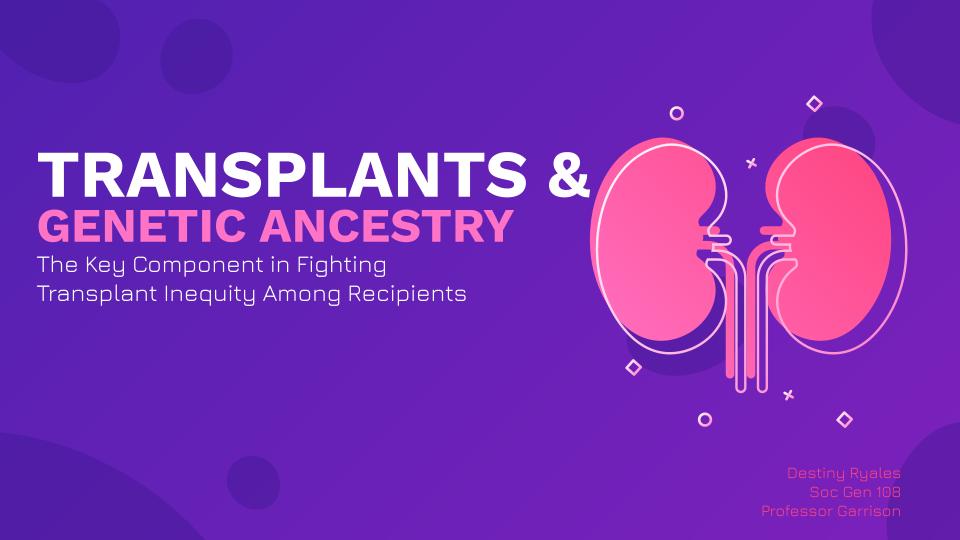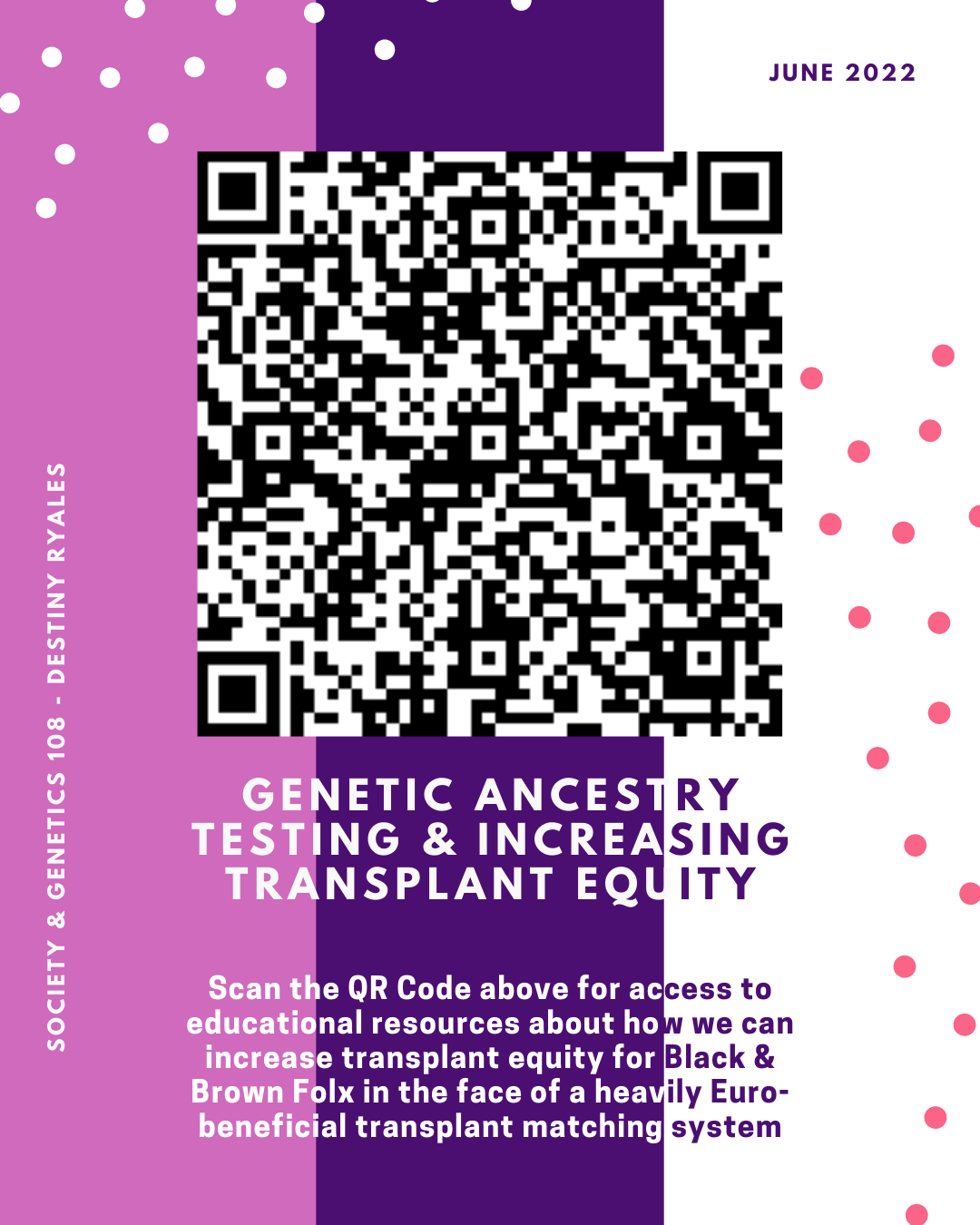Transplants & Genetic Ancestry: A Fight Against Inequality

By: Destiny Ryales
Everyday thousands of people fight for transplants that may never come, and for some the fight was lost before it had even begun.
Hundreds of thousands of people in the United States and across the world are in need of transplants, but from kidneys to bone marrow there is a lack of donors available. In the face of huge disparities in donation and receipt between non-hispanic White individuals and other large racial groups, considering the genetic ancestries of donors and recipients may be the key to shrinking the gap. The three main factors that I want to highlight as contributors to this inequity are first, poor prioritization of genetic marker matching, in particular the view that having the same Human Leukocyte Antigens is paramount in matching donors and recipients. Next, the idea of having more white donors than non-white donors because this is an issue that is at times over-exaggerated in significance, and this stems partially from a lack of congruence between genetic ancestry and the racial identities people are raised with. The third and final reason I want to discuss is the influence of racial dynamics in health care, in other words how white-identifying/presenting individuals have historically experienced better care in the face racial dynamics and therefore better health outcomes than non-white identifying/presenting individuals. Genetic ancestry tests would do the work of relating donors to genetically similar recipients, and take the personal racial biases out of transplant science on both the patient and healthcare professional ends. In doing so those seeking matches could do so based on compatibility of non-HLA genomic markers between donors and recipients accounting for genes that code more acutely for transplant success.
Genetic Ancestry Testing vs. Transplant Inequality by Destiny Ryales